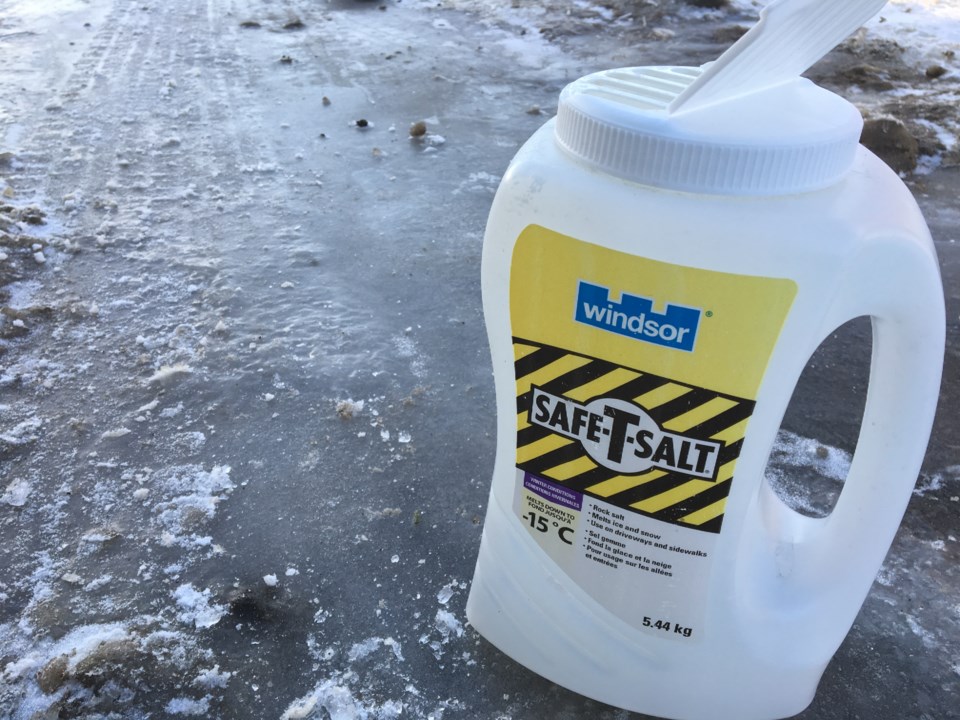With an eye on the cumulative impacts of de-icing salt on the environment, wildlife and Guelph’s water supply, city officials are working to bring down the amount being used each winter.
“The problem with salt is it doesn’t disappear. … It can get into our natural heritage features, our streams, our rivers and excessive amounts of salt can degrade that,” said Peter Rider, the city’s source water protection program manager. “It can keep elevating concentrations over time.”
In partnership with the University of Guelph, the city recently launched an effort to collect real-time details on the effects of different levels of salt put down in varying temperatures and conditions, including areas that receive substantial sunlight and those that remain in shade.
The effort stretches across several city departments and includes reviewing new technologies and different application approaches.
“We want to make sure we strike that balance between protecting the environment and minimizing impacts but maintaining safe roads and safe sidewalks, things like that,” Rider explained. “We live in Canada, we have cold weather and winter seasons.”
While that initiative applies solely to municipal facilities, including roads, a public education effort is also in the works.
“Everybody can play a part in minimizing road salt,” Rider said. “We’re looking at innovative ways to leverage knowledge and perhaps changing some habits. I think the citizens and businesses and industry are pretty compliant with being environmentally friendly but it doesn't hurt to keep telling people about the importance of being vigilant.”
Cameron Smith, a University of Guelph student who has lived in the city for the past two years, wants to see provincial regulations changed to better protect municipalities from injury lawsuits related to salt reduction efforts – something that’s been done with success elsewhere.
In 2013, the state of New Hampshire passed a motion limiting the liability of certified commercial applicators of de-icing salt.
Smith launched an online petition on March 18 calling for “top-down political pressure” on the issue. As of Friday afternoon, there were 91 signatures to it.
“Politicians are aware of this problem, municipalities have been reporting this and asking for their assistance for over a decade,” he said in a post explaining the petition. “They are not acting on it because it hasn’t generated enough public outrage.”
Smith told GuelphToday he’s planning to present the petition to city officials on Monday and hopes it receives enough signatures that it carries clout with upper-tier governments too.
“They’re aware, they’re just in no rush to do anything about it,” Smith said of protecting municipalities as they reduce salt use. “That’s what’s driving me nuts about it.
“I just don’t see any other alternative.”
Smith, an environmental science student, said he learned of the problem while working on a class assignment to reach out to Great Lakes municipalities to learn what they’re doing to minimize the use of road salt.
“There’s some places where the water body is as salty as the ocean,” he said. “These ponds right next to the highway, it just accumulates. It can’t go anywhere.”
